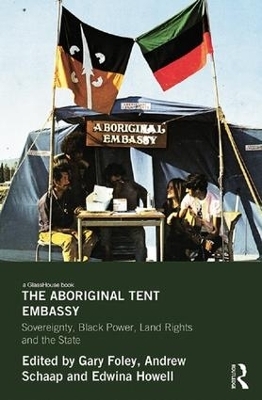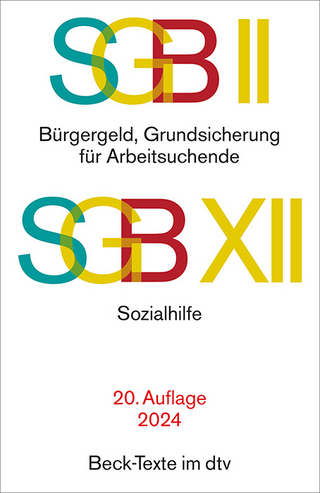
The Aboriginal Tent Embassy
Routledge (Verlag)
978-0-415-83951-8 (ISBN)
The Aboriginal Tent Embassy was established in Canberra in January 1972, when four Aboriginal activists drove from Sydney to Canberra, planted a beach umbrella on the lawns across the road from the Commonwealth Parliament House, and called it an Embassy. They were responding to a speech by conservative Prime Minister William McMahon in which he rejected Aboriginal land rights and reaffirmed the government’s commitment to a policy of assimilation. The protestors declared that McMahon's statement effectively relegated indigenous people to the status of ‘aliens in our own land’, thus as aliens ‘we would have an embassy of our own’. The brilliant idea of pitching a Tent Embassy hijacked all the symbolic 'national significance' attached to this small patch of grass by the Australian state and media, and put it to work for radically different purposes. It enacted the kind of land rights that the activists were seeking, and it did so in a way that also drew attention to the living conditions of so many Aboriginal people across Australia. On its twentieth anniversary, the Embassy was permanently established, as part of an on-going struggle for recognition of Aboriginal land rights and sovereignty. It remains today, and celebrates its fortieth anniversary in 2012. This book draws together contributions from an interdisciplinary group of Aboriginal and non-Aboriginal scholar, some of whom were participants in the events that they write about, to examine the social, historical and political significance of the Aboriginal Tent Embassy for Australian society and for the struggle for indigenous rights internationally.
Gary Foley teaches history at Victoria University, Australia; Andrew Schaap teaches politics at the University of Exeter, UK.
Introduction, Gary Foley and Andrew Schaap; SECTION 1 THE ORIGINS AND EVENT OF THE 1972 DEMONSTRATION: 1: The Origins of Aboriginal political consciousness and the Aboriginal Embassy, 1907-1972, Gordon Briscoe; 2: Tracking Back: The 1920s Australian Aboriginal Progressive Association links to the Aboriginal Tent Embassy, John Maynard; 3: Aboriginal rights and the Cold War; Ann Curthoys; 4: Blackpower in Redfern, 1968-1972, Gary Foley; 5: The Aboriginal Embassy: An account of the protest of 1972, Scott Robinson; 6: Reflections on the Aboriginal Embassy from 1972, Various; 7: Speeches at the Aboriginal Embassy, 30 July 1972, Paul Coe, Bob Maza, Jack Cummings, Roberta Sykes, Michael Anderson, Chicka Dixon, Dennis Walter & Bob Pringle, recorded by Derek Freeman; SECTION 2: THE EMBASSY SINCE 1972: 8: Declaration of Aboriginal Sovereignty, 1992, Kevin Gilbert (with Paul Coe); 9: Who owns Tent Embassy – the Film? Frances Peters-Little; 10: The Constitutional Politics of Reconciliation Place and the Aboriginal Embassy, Andrew Schaap & Paul Muldoon; 11: "War by other means?" Sovereignty and the Aboriginal Tent Embassy, Fiona Nicoll; 12: Reflections on the Aboriginal Tent Embassy Genocide case, Jennifer Balint; SECTION 3: THE LEGACY OF THE EMBASSY: Chapter 13: 'The death of the radical will not be televised' The Aboriginal Protest Movement - pre and post the Tent Embassy, Tony Birch; 14: The spatial politics of Aboriginal protest in the Parliamentary Triangle, Kurt Iveson; 15: What do we want? Not native title, that's for bloody sure, Nicole Watson
| Erscheint lt. Verlag | 20.6.2016 |
|---|---|
| Verlagsort | London |
| Sprache | englisch |
| Maße | 156 x 234 mm |
| Gewicht | 453 g |
| Themenwelt | Recht / Steuern ► Allgemeines / Lexika |
| Recht / Steuern ► Arbeits- / Sozialrecht ► Sozialrecht | |
| Recht / Steuern ► EU / Internationales Recht | |
| Recht / Steuern ► Öffentliches Recht ► Völkerrecht | |
| Sozialwissenschaften ► Ethnologie | |
| Sozialwissenschaften ► Politik / Verwaltung | |
| Sozialwissenschaften ► Soziologie | |
| ISBN-10 | 0-415-83951-3 / 0415839513 |
| ISBN-13 | 978-0-415-83951-8 / 9780415839518 |
| Zustand | Neuware |
| Haben Sie eine Frage zum Produkt? |
aus dem Bereich


